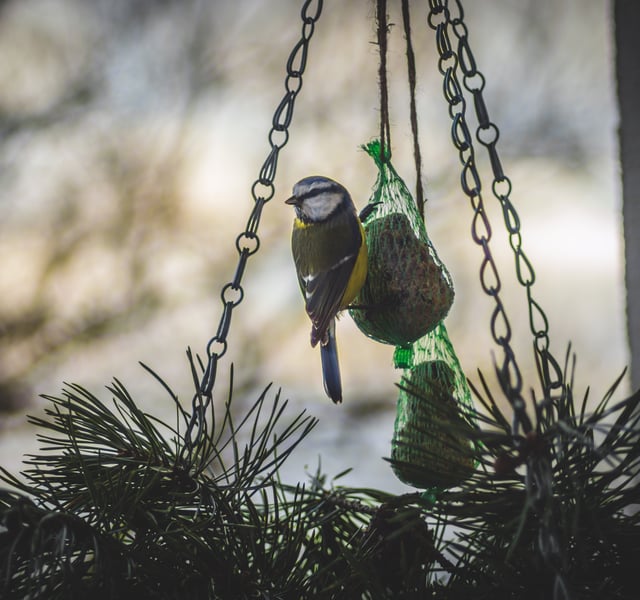Feeding birds in your backyard is a delightful and rewarding way to connect with nature while contributing to bird conservation efforts. However, it's essential to approach bird feeding responsibly to ensure the well-being of our feathered friends and the ecosystem. This guide provides a structured approach to start bird feeding and highlights key considerations for a sustainable and nature-friendly experience.
Get started with these easy steps. Setting up a bird house is small effort with a lasting impact on the ecosystem you live in.
Opt for feeders made of eco-friendly materials, such as recycled plastic or sustainable wood. You can also upcycle material and make some yourself.
Select different types of feeders to accommodate various bird species, including platform feeders, tube feeders, and suet feeders.
Invest in high-quality birdseed to attract a diverse range of birds.
Choose a mix that includes sunflower seeds, millet, and cracked corn to cater to different bird preferences.
Avoid using stale or moldy food, as it can harm the birds.
Position feeders away from windows to prevent bird collisions.
Place feeders in open spaces, providing birds with a clear line of sight to spot potential predators.
Regularly clean the feeding area to prevent the accumulation of waste that could attract pests.
Establish a consistent feeding schedule to help birds anticipate the availability of food.
Winter months are particularly critical for bird feeding when natural food sources are scarce.
You already have a bird feeding station set up or are curious for more bird protection? Continue with the following:
Install bird baths or shallow containers of water near the feeders.
Ensure water sources are clean and changed regularly to prevent the spread of diseases.
Consider the impact of bird feeding on local wildlife dynamics.
Avoid feeding birds excessively, as it may disrupt natural foraging behaviors.
It's all old news to you or you just can't get enough of the birds in front of your window? That's great and surely captures some carbon. Some inspiration to dig deeper:
Keep an eye out for signs of disease among the birds.
If you notice sick birds, temporarily discontinue feeding and clean feeders thoroughly to prevent disease transmission.
earn about the bird species in your area to better cater to their specific needs.
Be aware of migratory patterns, as different species may visit during specific seasons.
Keep a birdwatching journal to document the species that visit your feeders.
Involve friends and family, creating an opportunity to educate others about the importance of bird conservation.
Who is your fellow bird watcher? Share these starter tips to become a conservationist in no time.


